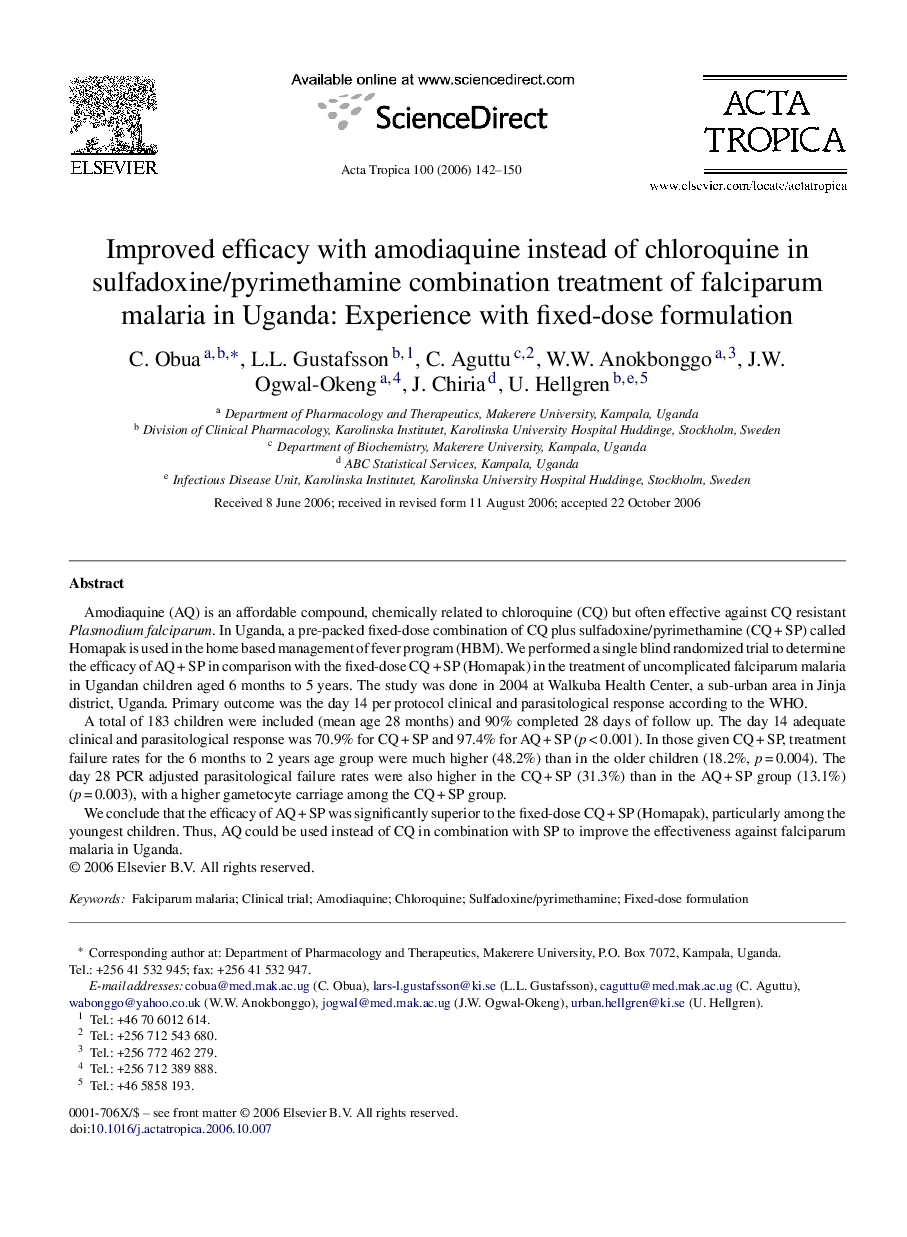| Article ID | Journal | Published Year | Pages | File Type |
|---|---|---|---|---|
| 3394763 | Acta Tropica | 2006 | 9 Pages |
Amodiaquine (AQ) is an affordable compound, chemically related to chloroquine (CQ) but often effective against CQ resistant Plasmodium falciparum. In Uganda, a pre-packed fixed-dose combination of CQ plus sulfadoxine/pyrimethamine (CQ + SP) called Homapak is used in the home based management of fever program (HBM). We performed a single blind randomized trial to determine the efficacy of AQ + SP in comparison with the fixed-dose CQ + SP (Homapak) in the treatment of uncomplicated falciparum malaria in Ugandan children aged 6 months to 5 years. The study was done in 2004 at Walkuba Health Center, a sub-urban area in Jinja district, Uganda. Primary outcome was the day 14 per protocol clinical and parasitological response according to the WHO.A total of 183 children were included (mean age 28 months) and 90% completed 28 days of follow up. The day 14 adequate clinical and parasitological response was 70.9% for CQ + SP and 97.4% for AQ + SP (p < 0.001). In those given CQ + SP, treatment failure rates for the 6 months to 2 years age group were much higher (48.2%) than in the older children (18.2%, p = 0.004). The day 28 PCR adjusted parasitological failure rates were also higher in the CQ + SP (31.3%) than in the AQ + SP group (13.1%) (p = 0.003), with a higher gametocyte carriage among the CQ + SP group.We conclude that the efficacy of AQ + SP was significantly superior to the fixed-dose CQ + SP (Homapak), particularly among the youngest children. Thus, AQ could be used instead of CQ in combination with SP to improve the effectiveness against falciparum malaria in Uganda.
